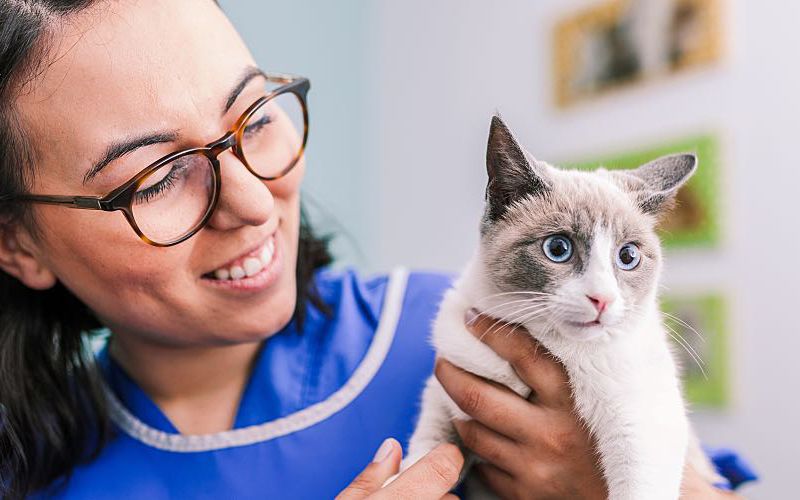Why Do Vet Techs Leave and How Can You Inspire Them to Stay?


Vet techs are crucial to the success of our practices, and we spend a great deal of money and resources trying to hire them. Some of us may be lucky and have a full team with only dedicated, competent technicians. Others may be struggling to retain techs and keep them engaged in the job.
According to a survey completed by the American Veterinary Medical Association in 2016, the average practice has a 21% turnover rate, with some practices as high as 33% to 50%. The ninth edition of the American Animal Hospital Association's Compensation and Benefits found that the average annual turnover rate for veterinary teams is 23%, compared to only 15% for all U.S. workers. When asked how satisfied veterinary technicians are with their position, 51% stated they were very satisfied. However, they also found that over half (56.7%) had left their place of employment within the first five years.
How Upgrading Your Veterinary Software Can Help with Staff Retention. Read now.
With these stats in mind, it's important to identify the key reasons vet techs leave and build a plan for creating a practice environment that inspires your team to stay long-term.
Why Do Vet Techs Leave?
There are many reasons veterinary technicians leave their practices. Some of the most common include low pay, compassion fatigue, and burnout from busy schedules and understaffed practices. Another big reason members of your team may look elsewhere for employment is a lack of recognition for a job well done. Further, technicians may feel trapped in a position that does not have any room for career advancement, especially at smaller practices. It's important to recognize and address these issues early — before your techs decide to give their notice.
Low Pay
Low or inadequate pay is one of the key reasons techs leave. You could lose them to other practices that might pay them $1.00 more an hour, or you might lose them to a different profession entirely. As the average pay for veterinary technicians is only $16.20 an hour, according to Indeed, it's hard to blame them. Why wouldn't they be tempted to leave if another opportunity offered more money?
My practice has felt the sting of losing a talented technician to human medicine. She now makes more per hour, has better benefits, and works better hours. We all know that bumping up salaries, however, is not as easy as we would like it to be. We must bring in more revenue to cover those higher costs. It may be worth having an open conversation about this with your technicians and greater team and consider alternate forms of compensation.
For instance, you could implement a bonus system that will reward your techs for hospital growth and give them a reason to stay when the practice is successful. At our practice, we recently started a monthly bonus program that was based on increasing our average client transaction. We immediately saw a huge improvement in our revenue because our team was focused on not missing any charges or crucial conversations about preventive care. The monthly bonuses will give each team member an increase in pay of at least $2.50/hour for the month that the goals are reached. Not only are they extremely motivated to hit the goals, but they feel appreciated when the rewards of success are shared with them.
Lack of Recognition
You likely try to recognize your team's hard work — whether you occasionally treat them to lunches, gift team members swag for vet tech week, or offer holiday bonuses. But, are you thanking them in ways they care about? Some team members are happy with pizza as a reward, but for others, that just doesn't cut it. Over time, this lack of meaningful recognition can cause an employee to seek a new workplace.
Take the time to speak with your team about how they wish to be acknowledged. When I bring on new team members, they all complete a form that tells me their favorite things so I can know what they would want for a treat. I also take the time to ask them directly, "How do you like to be recognized for your accomplishments and wins?" For some, they want to be acknowledged at a team meeting. Others want quiet recognition. And others do love getting pizza for lunch. Find out how each individual likes to be recognized and award them that way. A great resource to help implement this is "The Five Languages of Appreciation in the Workplace" by Gary Chapman and Paul White.
FREE HANDBOOK: How to boost team morale. Candy helps, too
Stifled Career Advancement
Your vet techs may feel like they are stuck in the same position year after year. For smaller practices that don't have large leadership teams or different departments that technicians can work up through, it can be a challenge to provide a sense of upward mobility. But even the smallest practice can find ways to give their technicians new challenges to grow their skills.
Talk with each technician about their interests and goals. Ask them what you can do to create a position that supports their growth and development. Once they have a good foundation and are settled into their position, we talk about what are they interested in and how we can grow their skills. All of our technicians have an area that they are responsible for in the practice. One technician excels in surgery and coordinates our surgery suite and controlled drug logs. Another technician oversees safety and a third excels in internal medicine and client education.
Also, give your techs access to ongoing continuing education through websites like atdove.org or VetBloom to enable them to learn about what really interests them. But most importantly, talk to them about their career goals and don't assume you know what they want. Honest and open communication is the only way to know what they need — and showing them how much you care about their professional development will improve your retention efforts.






